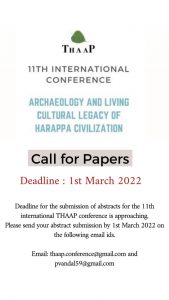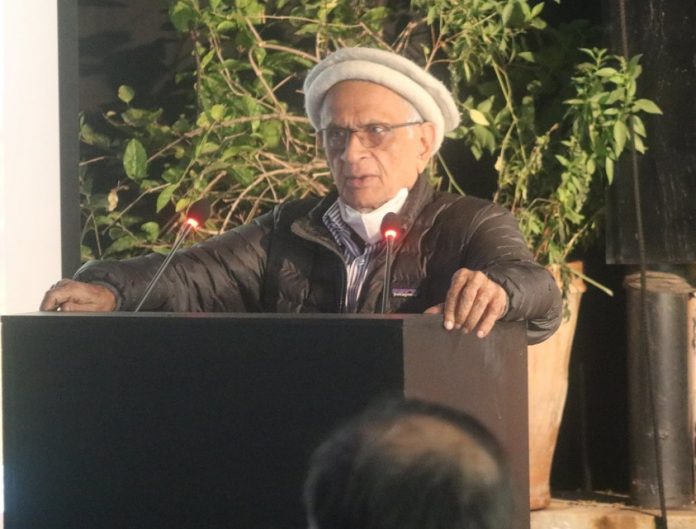Lahore (NUT-DESK)
After a forced hiatus of two years due to the pandemic THAAP has decided to hold the its annual THAAP Conference – 2022, in November. The theme of the 11th international THAAP conference is “Archaeology and Living Cultural Legacy of Harappa Civilization” and Scholars are invited to research, write, and present papers at the conference to be held on November 25, 26 & 27, 2022.

Interested scholars from all over the world are invited to participate and write a paper on the proposed theme; they have been asked to submit an abstract of no more than 300 words till 1st March 2022, at thaap.conference@gmail.com and pvandal59@gmail.com , outlining the thought, research and presentation that you will make at the Conference. The actual paper shall be 3000 to 4000 words. The Paper Selection Committee will inform the selected paper readers after which the complete paper will be due by Oct 2022.
The creative force behind Thaap conference, Pervaiz Vandal shared that the extent and age of the Harappa Civilization has been established by recent archaeology and culture studies as being more than 10,000 years old covering area beyond the immediate Indus Valley to Gujrat and Helmand region of India and Afghanistan. Language is a living carrier of cultural traditions and its study has thrown up important clues to the understanding of history of the Punjab, a sector of the region.
Harappa culture is the label now in common use to define the broader Indus Valley Civilization that with every new archaeological discovery and insight from culture studies never ceases to amaze with its beauty and complexity. The residents of this region are the inheritors of this unique culture that shows an unbroken link through centuries. There are present day facets of culture, belief systems, language that can be traced back to pre-Harappa times and help explain the particularity of our region and social behavior. The three day conference will give thought provoking details about the land of 5 (7) rivers, Punjab. The language script remains to be deciphered, there is no sustained long term program of archaeological investigation, there is lack of political coordination among the three countries that house the remains, and there is hesitation to accept Harappa Culture as a common heritage.
During the three day conference, various sessions of research paper reading, cultural talks and other literary gatherings will be held at THAAP secretariat. Writers, Scholars and Cultural lovers will attend the proceedings.
********





